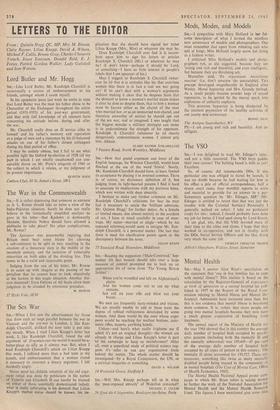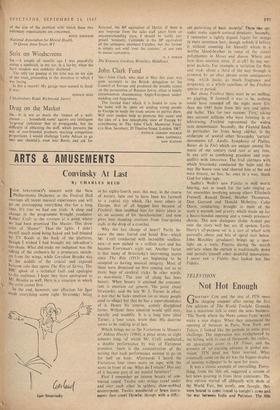Mental Health
SIR.—May I answer Alan Brien's speculation on the statement that 'one in five families has to cope with mental illness'? This statistic is based on the calculation by the Registrar-General of expectancy at birth of admission to a mental hospital (as pub- lished in 1957 in the Report of the Royal Com- mission relating to Mental Illness and Mental De- ficiency). Admissions have increased since then, but this is not evidence that mental illness is becoming more common. It is, rather, that more people are going into mental hospitals because they now have a much greater expectation of benefiting from treatment.
The annual report of the Ministry of Health for the year 1964 'showed that in this country the avera,oc daily number of hospital beds occupied by ps}chi- atrie patients (including both the mentally ill and the mentally subnormal) was 189,449-47 per cent of the average daily number of hospital beds occupied by all types of patient in this country. Tile mentally ill alone accounted for 130,527. There :1 moreover, something like twice as many mentallY disabled people being treated in the community as in mental hospitals (The Cost of Mental Care, Office of Health Economics, 1965).
The Mental Health National Appeal poster cam- paign to which Mr. Brien refers is raising moneY to further the work of the National Association for Mental Health and the Mental Health Research Fund. The figuresd have mentioned give some id"
of the size of the problem with which these two voluntary organisations are concerned.
JOYCE EMERSON
National Association for Mental Health, 39 Queen Anne Street, WI



































 Previous page
Previous page